In 2023, Toycloud quietly crossed a significant milestone, with its revenue surpassing RMB 1 billion (USD 140 million), cementing its status as a formidable player in the smart devices industry for children. Despite this achievement, the company from Anhui remains under the radar, with its brand Alpha Egg more recognized than the company itself.
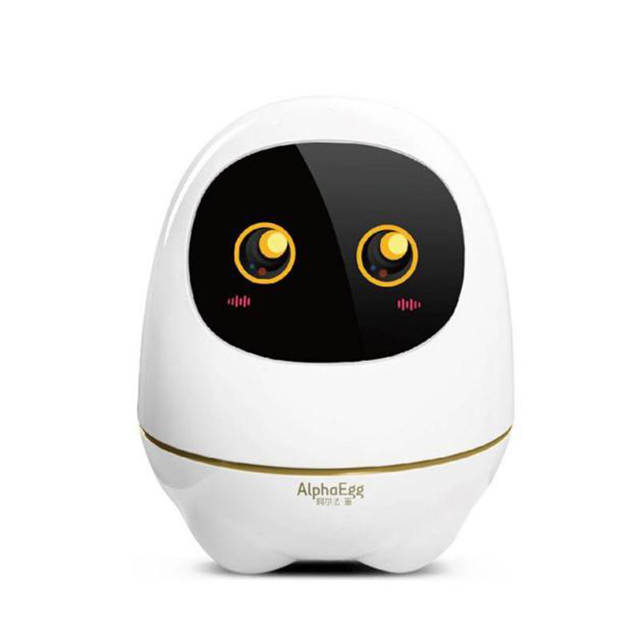
Toycloud’s ascent has been marked by its flagship products, such as dictionary pens and robots under the Alpha Egg brand, which have become staples in their category. The company even pioneered the smart robot subcategory tailored for children on e-commerce platforms. Yet, even with such success, Toycloud maintains an air of discretion. After 15 years in the market and annual revenues well into the nine-figure RMB range, the world outside remains largely unaware of Toycloud or its two founders.
The Chinese smart hardware market, especially the children’s segment, has long been a fiercely contested space. Many companies have ventured into this competitive landscape only to retreat, leaving a trail of failures behind. Yet, over the past 15 years, Toycloud has not only survived but thrived, repeatedly launching products that have reshaped the industry. Remarkably, the company managed to multiply its revenue by 30 times in just four years.
Who exactly is Toycloud? How did it achieve such success? What strategies can others glean from its journey? This article delves into these questions.
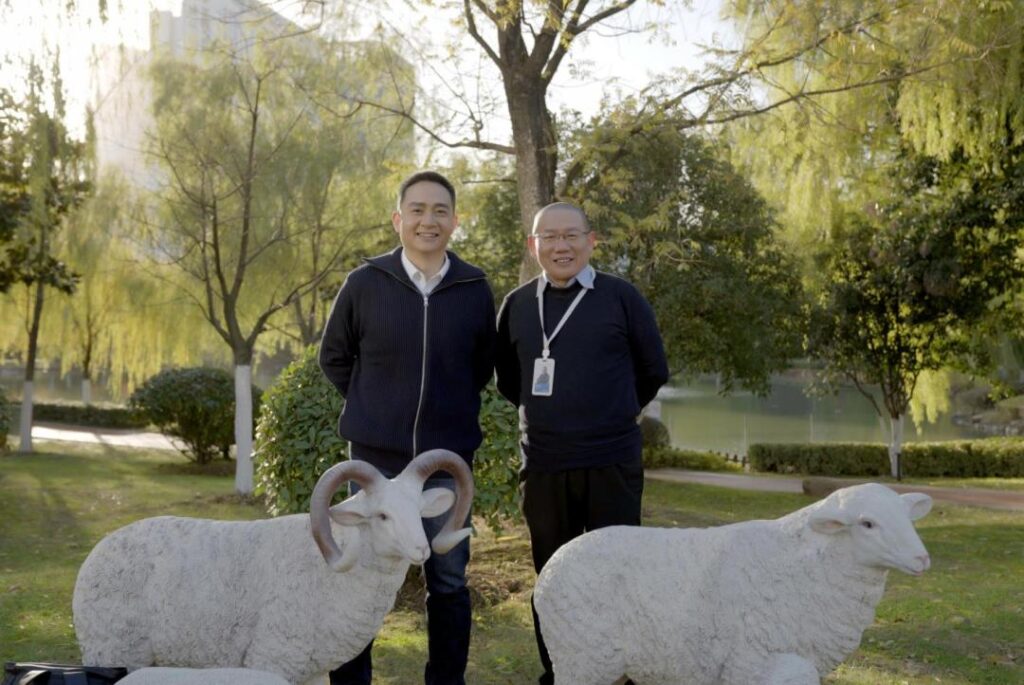
The rise of Haibao
During the 2022 Winter Olympics in Beijing, a familiar figure made an unexpected return: Haibao, the mascot of the 2010 Shanghai World Expo. As the official Bing Dwen Dwen mascot quickly sold out, netizens dug out their old Haibao dolls, sharing them on social media and humorously comparing the two mascots.
To many, it was a surprise that the talking Haibao toys, over a decade old, still functioned flawlessly, engaging users with voice interactions—a groundbreaking feature back in 2010. At a time when China was transitioning from the iPhone 3GS to the iPhone 4, a toy that could “understand” its user was nothing short of revolutionary.
These Haibao toys, licensed by the Bureau of the Shanghai World Expo Coordination and produced by Shanghai Juneyao Group, featured intelligent voice technology developed by Toycloud—formerly iFlytek’s toy division.
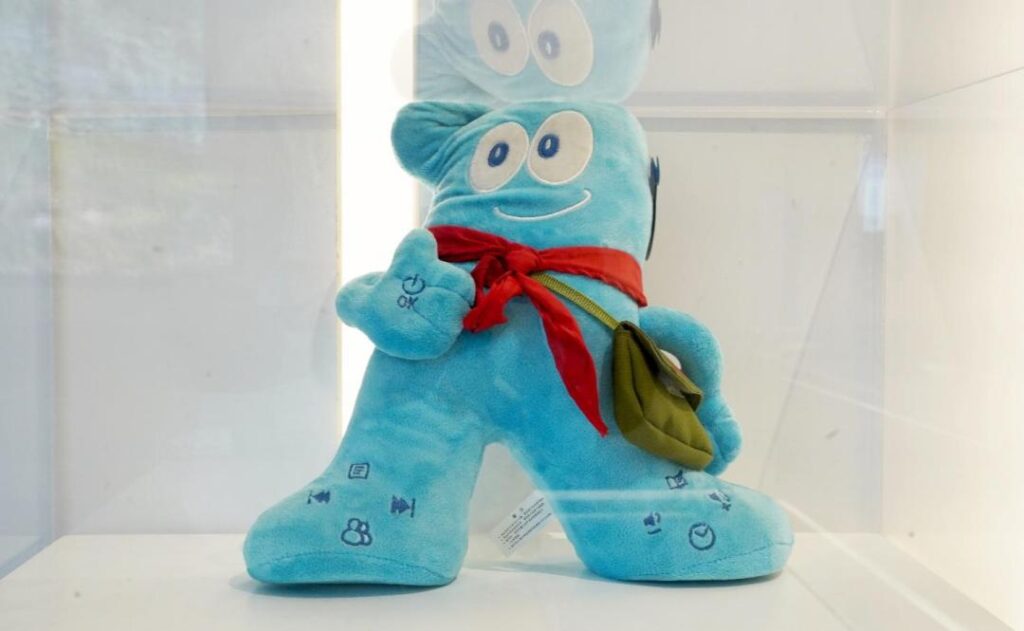
In 2009, Liu Qingsheng, a PhD graduate from the University of Science and Technology of China (USTC), who had joined iFlytek eight years earlier, founded the smart toy division. Liu was known for being both the younger brother of iFlytek’s founder, Liu Qingfeng, and one of the company’s earliest employees since its inception in 1999.
While his brother focused on B2B applications of voice technology, Liu’s interest lay in creating voice-activated toys for children. During his graduate studies at USTC, Liu conducted research on these toys and, alongside his team, visited toy factories in Dongguan to gain technical and product experience.
At the time, China’s toy market was vast but underdeveloped, with most factories operating as original equipment manufacturers (OEMs) competing at the low end of the market. However, as living standards improved, the demand for higher-quality, smarter children’s toys became inevitable.
In the same year iFlytek’s toy division was founded, Liu led the development of one of China’s first intelligent voice-activated toys, “Mofa Guagua,” a pumpkin-shaped plush toy that could tell stories, recite Tang poetry, speak English, and play music. It quickly became a hit. Later, the talking Haibao became a nationwide sensation during the World Expo.
Liu had found his direction and pursued it successfully.
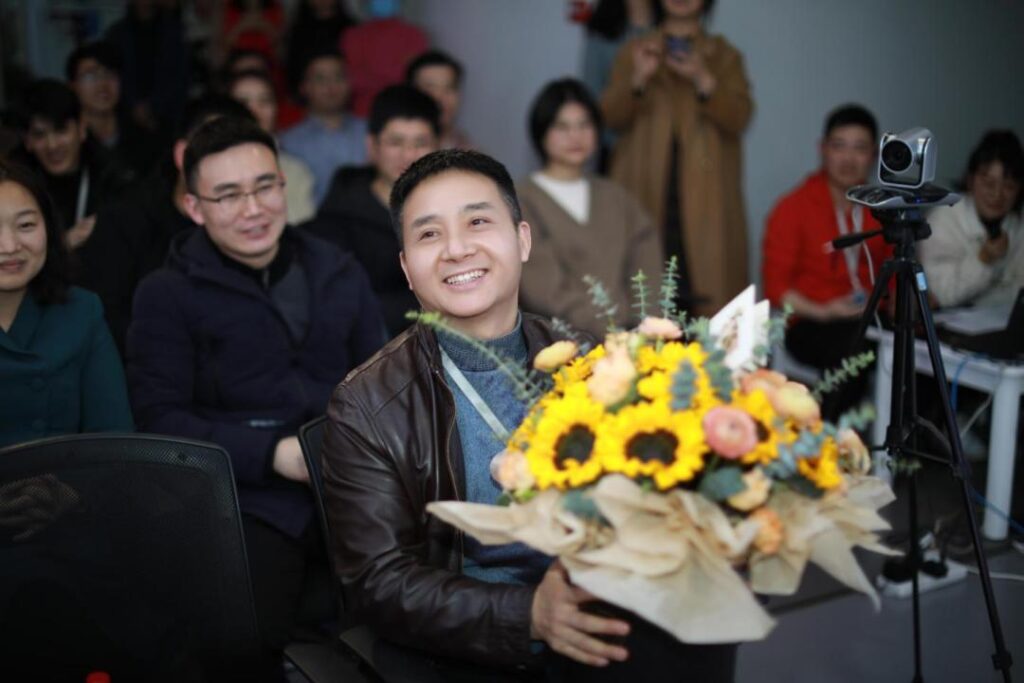
“We started dedicating a lot of time and effort to children’s voice and semantic recognition back in 2009,” Liu told 36Kr.
“Back then, voice technology was primarily based on adult voice data, with very little for children’s voices. But toys accompany children every day, and if the voice recognition doesn’t work well, it can be very harmful to the child. Some toys would understand a parent’s voice, but not a child’s, leading to frustration and even tears. Children would imitate the toy, repeatedly saying, ‘I didn’t hear you, please say it again,’ which could be very discouraging,” Liu explained. “This experience made me realize that, because children’s pronunciation and language are not standardized, the requirements for artificial intelligence interaction technology in children’s products are much more complex and demanding. Only with a deep respect for children’s products can we create a ‘companion’ that truly listens and speaks.”
With iFlytek’s voice technology as a foundation and the team’s continued R&D efforts in children’s voices, the intelligence and interactivity of products like Haibao and Mofa Guagua were far ahead of their time, receiving excellent feedback from the children’s market.
From 2011–2012, the team began developing a new intelligent solution that integrated AI, cloud computing, and big data. This innovation resulted in annual revenues breaking the eight-figure RMB mark and established Toycloud as a rising star in the industry.
Riding the wave of change
During this period, the Chinese children’s toy market was undergoing a significant transformation. In 2009, Taobao held its first Singles’ Day online shopping event, marking the onset of the e-commerce boom. Over the next decade, online shopping dramatically reshaped the purchasing habits of Chinese consumers.
At that time, while there was a growing market for children’s voice-activated toys, the quality of these products varied widely. In a race to capture the market with low prices, some companies resorted to using cheap, substandard materials, often at the expense of children’s safety. This not only jeopardized children’s health but also disrupted the overall industry, making it difficult for high-quality products to gain traction.
As head of the toy division, Liu Qingsheng frequently pondered how to expand the reach of their toy products to a broader consumer market and democratize access to their technology. His thoughts were deeply intertwined with his love and commitment to children’s welfare.
The year the team created Mofa Guagua, Liu Qingsheng’s daughter was still in kindergarten. As a new father, he observed firsthand how much his daughter adored the toy—insisting on a half-hour story every night and refusing to part with it even on walks.
For adults, a toy might be just a combination of fabric and electronics. But for a child, it becomes their best friend, a constant companion, and a cherished memory of their childhood.
At that moment, Liu Qingsheng realized that if he wanted children to truly enjoy safe, engaging voice-activated toys, he needed to take a bold step into the consumer market and develop independent, controllable toy products. However, creating a truly good toy was no easy feat.
Beyond the design challenges, the software and hardware components related to voice technology involved a complex web of mold making, manufacturing, electronic components, chips, circuit boards, control systems, sound components, and countless other interlinked processes. Any misstep could derail the entire project, costing time, labor, and resources.
At that time, iFlytek was just beginning to explore consumer products, and the toy team lacked a capable leader.
In 2015, Liu Qingsheng made two pivotal decisions. First, the toy division officially separated from iFlytek, becoming an independent entity, and entered the consumer children’s toy market. Second, he decided to relocate to Shenzhen.
Liu Qingsheng’s move to Shenzhen had a purpose: to find his senior, Wu Yusheng.
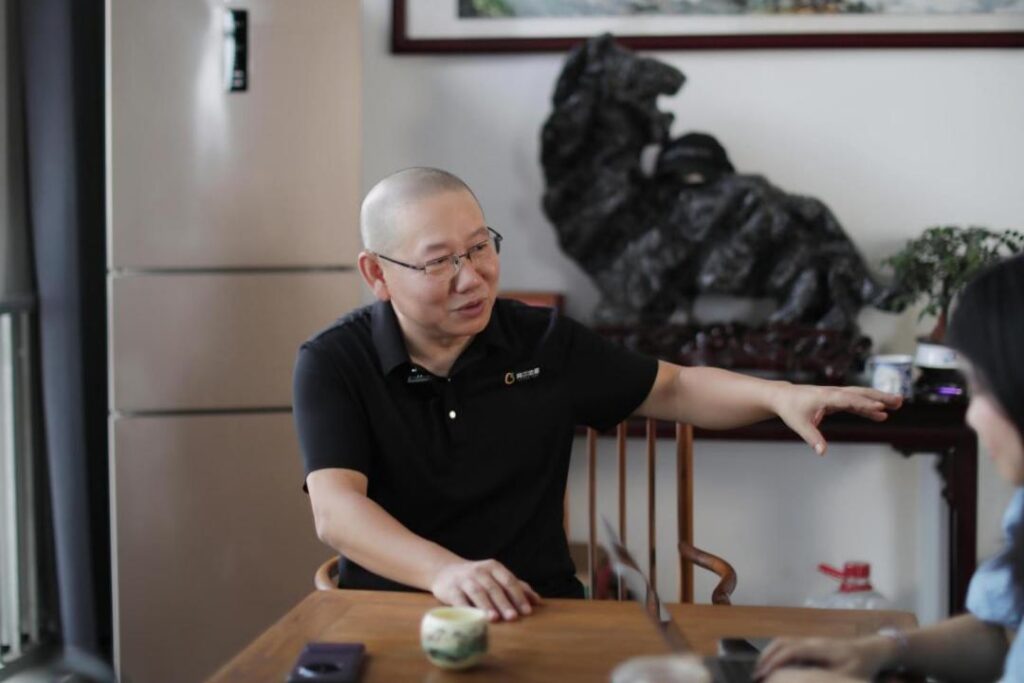
Since the 1980s, the Pearl River Delta, with its robust hardware manufacturing network centered around Shenzhen and Shantou, had become a world-class hub for the research and production of children’s toys. Wu, also a USTC graduate, was among the first wave of intellectuals to move to Shenzhen in the 1990s, joining the toy startup boom.
The two men, both from the same alma mater and both deeply involved in the children’s toy industry, had known each other for years. By this time, Wu had already established himself in Shenzhen’s toy industry. His team, a provider of voice technology solutions for children’s toys, had amassed extensive resources across the supply chain. Back in 2009, the “Chaoji Doudou” talking doll, featuring both of their technologies, had been a major success, even being given as a gift to Macau residents.
What made their partnership even more fortuitous was that their children were born just a year apart. Despite their differing personalities—Liu Qingsheng being gentle and refined, Wu bold and hearty—the two hit it off immediately, especially when discussing the state of China’s toy industry.
Their views were almost identical. They wanted to break the strong OEM, weak brand status quo in China’s toy industry. They aimed to change the industry’s focus on low quality, knockoffs, and quick profits. They sought to create educational, fun, and high-quality voice products for children—products they would feel confident giving to their own children.
In 2015, this shared vision led the duo to officially establish Toycloud.
Thirtyfold growth in four years: Toycloud’s rapid ascent
Before Toycloud became independent, its business had already reached a significant scale. But between 2015–2018, under the leadership of Liu Qingsheng and Wu, Toycloud achieved a staggering 30-fold increase in revenue in just four years. This period marked an era of explosive growth for the company, driven largely by the success of Toycloud’s most iconic product: the Alpha Egg children’s companion robot.
However, Alpha Egg was not Toycloud’s first venture into the consumer market following its formal establishment. In the early days of 2015, alongside its existing B2B operations, Toycloud launched its first smartwatch for children. This product was an instant market success, selling over a million units within just a few months.
What made this feat even more impressive was the speed with which it was accomplished. According to Wu in an interview with 36Kr, Toycloud finalized the product design for the smartwatch in May 2015. In just over 100 days, they managed to complete the entire process—from product definition, feature and ID design, and supply chain setup, to mold making, trial production, and mass production. By the end of August that year, the product was already shipping.
It’s important to note that at that time, children’s smartwatches were still a relatively new and untapped market. Another key player in the field, Xiaotiancai (XTC), also released its first children’s watch in 2015. The 100-day timeframe would go on to play a crucial role in Toycloud’s future trajectory, serving as a testament to the company’s agility and responsiveness.
Behind Toycloud’s remarkable speed was the founders’ deep market insight, extensive product and technology experience, and rich industry resources—all indispensable elements for their success.
In December 2015, the results of the 2015 ImageNet competition—the “Olympics of computer vision”—were announced, marking the first time AI technology outperformed humans in image recognition. A few months later, in March 2016, Google’s AlphaGo defeated human champion Lee Sedol in a Go match, heralding a new era in AI.
By 2016, AI technologies, particularly those based on deep learning, were exploding in popularity worldwide. Toycloud’s team quickly realized that the intelligent voice technology they had been refining for years had suddenly become the hottest trend.
Recognizing this shift, Toycloud aptly named its new children’s smart robot brand Alpha Egg, with “Alpha” representing the beginning and “Egg” symbolizing new beginnings—perfectly encapsulating the brand’s identity and signaling the dawn of a new era in AI technology.
Alpha Egg quickly became a sensation. From the launch of its first product, the Alpha Egg robot set the benchmark for children’s smart robots, even creating a new subcategory on major e-commerce platforms. To meet growing demand, Toycloud expanded the Alpha Egg lineup to include versions tailored for different age groups, such as Little Egg, Big Egg, and Super Egg.
The market success of Alpha Egg exceeded even Liu Qingsheng and Wu’s expectations. For instance, in 2017, over 100,000 units of the Little Egg were sold within just 60 days of its launch, making it the blockbuster product of the year and breaking numerous sales records.
At the time, although there were many children’s products with voice functionality on the market, the technological capabilities varied widely. In the voice-activated segment, Toycloud’s years of focus and expertise put it far ahead of competitors in terms of voice recognition accuracy, intelligence, and interactivity.
This was also true for product quality. “While others tested their products by dropping them from one or two meters, we designed Alpha Egg to withstand a ‘four-story drop.’ We would throw five Eggs from the fourth floor onto the grass below, and neither the appearance nor the functionality would be damaged,” Wu told 36Kr.
Prepare thoroughly, think broadly, and act with precision
In 2018, as Alpha Egg enjoyed widespread success, an unexpected wave of competitors suddenly emerged. At the end of 2017, Alibaba ignited a price war in the smart speaker market during the Singles’ Day shopping festival by slashing the price of its Tmall Genie from RMB 499 (USD 69.9) to RMB 99 (USD 13.9). By March 2018, Baidu launched its first smart speaker with a screen, the “Xiaodu Zaijia,” initially priced at RMB 1,599 (USD 223.8) but heavily subsidized to sell at RMB 599 (USD 83.9), setting a new low for screen-equipped smart speakers.
By 2018, competition had reached a fever pitch, with internet giants fiercely battling it out, armed with massive subsidies. These companies approached the hardware market with a strategy entirely different from traditional manufacturers. Driven by an aggressive expansion mindset and a desire for platform monopolization, these giants were willing to burn through vast sums of money in user subsidies, focusing on capturing user entry points as quickly as possible to build a cloud-plus-terminal service ecosystem.
As a result, these internet giants never intended to profit from hardware sales—in fact, they were even willing to sell products at a loss. Whether it was Tmall Genie’s original price of RMB 499 or Xiaodu Zaijia’s original price of RMB 1,599, these prices were already close to the actual cost of production.
Although smart speakers were not specifically designed for voice interactions with children, the extreme price subsidies significantly encroached on the market space occupied by the Alpha Egg series. By 2019, the entire Alpha Egg product line faced intense competition from offerings by internet giants and a flood of counterfeit, white-label products. Compounding these challenges was the severe impact of the Covid-19 pandemic on global manufacturing, creating unprecedented hurdles for Toycloud.
However, what eventually turned the tide was another 100-day sprint by Toycloud.
From its inception, the Toycloud team has continuously learned from the market, technology, and the competitive strategies of other players. For example, Toycloud actively reformed its offline channels during the early rise of platforms like JD.com and Taobao. As mobile internet, short video, community group buying, and other platforms emerged, the Toycloud team kept pace, mastering new-era algorithms, traffic dynamics, live commerce, and content e-commerce to stay ahead.
In terms of products, as advancements in AI, chips, sensors, and various electronic components accelerated, AI products became smaller, more accurate, and more intelligent, gradually meeting more precise and vertical user needs, particularly in children’s education.
In May 2020, Toycloud ventured into the educational hardware market, officially launching its first dictionary pen product. For educational hardware, the annual back-to-school season is a crucial time. With just 100 days left before the launch, Toycloud embarked on another high-stakes sprint.
This was yet another entirely new product category, and once again, Toycloud managed to pull off a thrilling 100-day turnaround, successfully navigating the entire process—from product definition to supply chain setup, from mold making to mass production.
Alpha Egg’s Q3 dictionary pen broke with market convention, which traditionally offered only English dictionary functionality, by innovatively adding Chinese dictionary features. By deeply integrating years of experience in image recognition technology with its superior voice technology and rich professional content, this pen could not only accurately recognize mixed handwritten and printed textbook content and various formula symbols but also function offline, quickly capturing market interest.
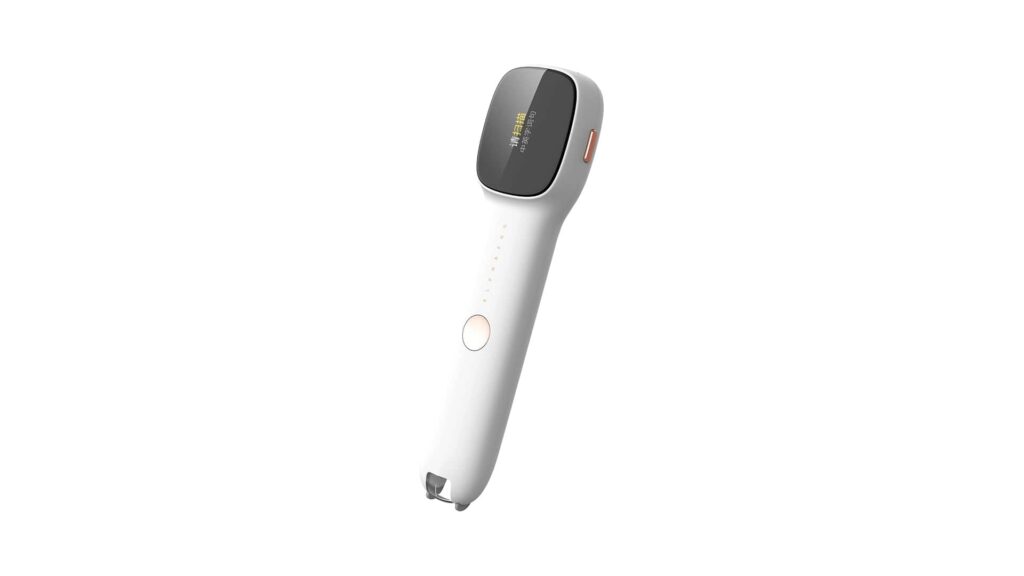
According to Wu in his interview with 36Kr, most of the core members of the Alpha Egg team are parents themselves. They interact with their own children daily, help with homework, and understand the needs of children deeply. “We’re not just making an educational hardware product—we’re making a product for our own children,” Wu Yusheng said.
The dictionary pen officially launched at the end of August 2020. By the end of that year, nearly 500,000 units had been activated, creating a sales phenomenon across major platforms.
From 2021 to 2023, Alpha Egg launched three more generations of dictionary pens—T10, T20, and D1—each iteration delving deeper into AI for children’s education. These pens gradually incorporated AI knowledge graphs, a database of 40 million high-quality math problems, math problem analysis, AI knowledge base guidance, and features tailored to the educational needs of children, such as English and Chinese essay grading.
One particularly noteworthy feature is the built-in technology in Alpha Egg’s dictionary pens, which shares the same algorithm used in the Nationwide Unified Examination for Admissions to General Universities and Colleges (Gaokao) for essay grading and spoken English scoring. For essay grading, the device can identify errors, provide revision suggestions, and offer optimized reference examples. It can even inspire children’s writing ideas through guided questions. In the spoken English segment, which poses challenges for many Chinese students, the dictionary pen not only utilizes Gaokao oral exam scoring technology to evaluate pronunciation but also offers dynamic video tutorials to help children identify their pronunciation weaknesses and engage in targeted practice.
By the end of 2023, in just three years, Alpha Egg had become the leading brand in the dictionary pen market. According to data from Runto Technology, the Alpha Egg D1, launched in Q3 2023, received high market recognition and quickly became the bestselling product of the year. In 2023, Toycloud’s total revenue exceeded RMB 1 billion, marking a remarkable comeback amid intense competition from internet giants.
On the surface, the dictionary pen may seem like another “hit” following the Alpha Egg companion robot, as if the company simply got lucky. But that’s not the case.
Liu Qingsheng told 36Kr, “Over the years, we’ve gained a deeper understanding of smart children’s products. Initially, we thought that having core technology was enough to make a product. Then we realized it also needed to be combined with content. After that, we found that creating an industry ecosystem was necessary. As time passed, we increasingly realized that to excel in the industry, we had to fully integrate the upstream and downstream of the industry chain.”
Alpha Egg stands out as a rare example among startups—an enterprise that controls the entire production chain, from core algorithms, circuit boards, chips, and components to software, hardware, content, branding, and sales.
On one hand, assembling an experienced team and integrating the entire industry chain is crucial for a company to execute orders and manage operations effectively. From project initiation in May 2020 to shipment in August, Alpha Egg’s 100-day high-stakes battle required flawless execution.
On the other hand, Alpha Egg’s success is driven by a relentless pursuit of excellence in technology and product development. Since 2009, Toycloud has consistently invested in voice technology, human-computer interaction (HCI), and AI, particularly in the niche area of children’s products, becoming a leader in voice, vision, and natural language understanding.
In a red ocean, play the long-term game
This summer, Alpha Egg launched the latest iteration of its high-speed dictionary pen: the D1 Pro. This product encapsulates the Alpha Egg philosophy, embodying advancements in speed, power, and thoughtful design, all refined to perfection across multiple scenarios.
Take, for instance, the “quick scan and fast boot” feature that the D1 Pro emphasizes. Currently, most dictionary pens require anywhere from ten to several dozen seconds of boot time before they can be used normally. For children who are easily distracted, this seemingly minor wait can disrupt their learning continuity and focus—something any parent who has helped with homework can easily relate to.
Is it possible to eliminate boot time and deliver instant results anytime, anywhere? The answer is yes, but it’s a complex challenge, particularly for hardware like dictionary pens, which are highly sensitive to power consumption and performance. The D1 Pro team spent an entire year in R&D, ultimately achieving an optimal balance between software and hardware performance, power consumption, response speed, and overall cost. This enables the D1 Pro to provide quick scans and rapid results, helping to maintain children’s focus during learning sessions.
Beyond performance, the Alpha Egg team has invested heavily in acquiring high-quality educational content. The D1 Pro comes preloaded with 82 authoritative, licensed dictionaries, covering all subjects from elementary to high school. The built-in translation, picture books, textbooks, and over 170,000 textbook sentences have been meticulously annotated by a team of three editors over six months, ensuring the utmost professionalism and reliability of the educational content while minimizing the risk of inaccuracies often seen in current large language models (LLMs).
The D1 Pro also features a larger, high-definition screen measuring 3.48 inches, with German TUV Rheinland eye protection certification. Responding to user feedback, it incorporates soft lighting from professional eye-protection desk lamps into the scanning pen head, offering gentler, more eye-friendly illumination that reduces the strain on children’s eyes from prolonged screen and lamp exposure.
Every aspect of the D1 Pro is infused with a parent’s concern, and this care is embedded in its AI.
According to data from China’s Ministry of Education, the number of students enrolled in formal education in China reached a record high of 293 million in 2022, an increase of 17 million compared to 2018. If current population trends continue, this growth is expected to persist for at least another decade.
In this highly competitive market, traditional manufacturers, K12 education companies, AI startups, and internet giants are all vying for a share. As one player exits, another enters, and the battles are relentless. New players emerge daily, while others withdraw just as quickly.
Yet, companies like Toycloud, which have remained steadfast in this arena for 15 years, are a rare breed.
This Q4, Toycloud is set to launch a new Go-playing robot. According to data from the Chinese Weiqi Association, there are currently about 60 million Go players in China, with 100,000 Go professionals and over 3 million young people learning Go each year. However, Go training institutions and resources are mostly concentrated in first-tier cities, leaving many children with limited opportunities for face-to-face training with a teacher, instead spending long hours staring at a computer screen.
“Many children give up learning Go because they worry about getting nearsighted. Our Go robot aims to change that,” Wu told 36Kr.
Once again, Toycloud is venturing into a new category with an entirely new hardware product. The Go robot presents a unique challenge, requiring precise computer vision and servo motor technology, and it targets a more specialized application scenario.
Alpha Egg is about to face another new challenge—but so what?
China’s smart hardware industry has always been fiercely competitive, especially in the children’s hardware market. Even in 2024, countless battles are still being fought daily in this space.
From mobile phones to MP3 players, MP4 players, children’s toys, watches, robots, speakers, wireless earphones, learning devices, and dictionary pens—everything you can think of, and even things you can’t, is here.
Looking back at Toycloud’s 15-year journey, if there’s a strategy that has guided them, it’s this: stay grounded in product development, perfect the simple things, and always choose the difficult but right path.
And most importantly, keep a parent’s heart in everything you do, pouring genuine love and care into every product.
KrASIA Connection features translated and adapted content that was originally published by 36Kr. This article was written by Xiao Xi for 36Kr.
